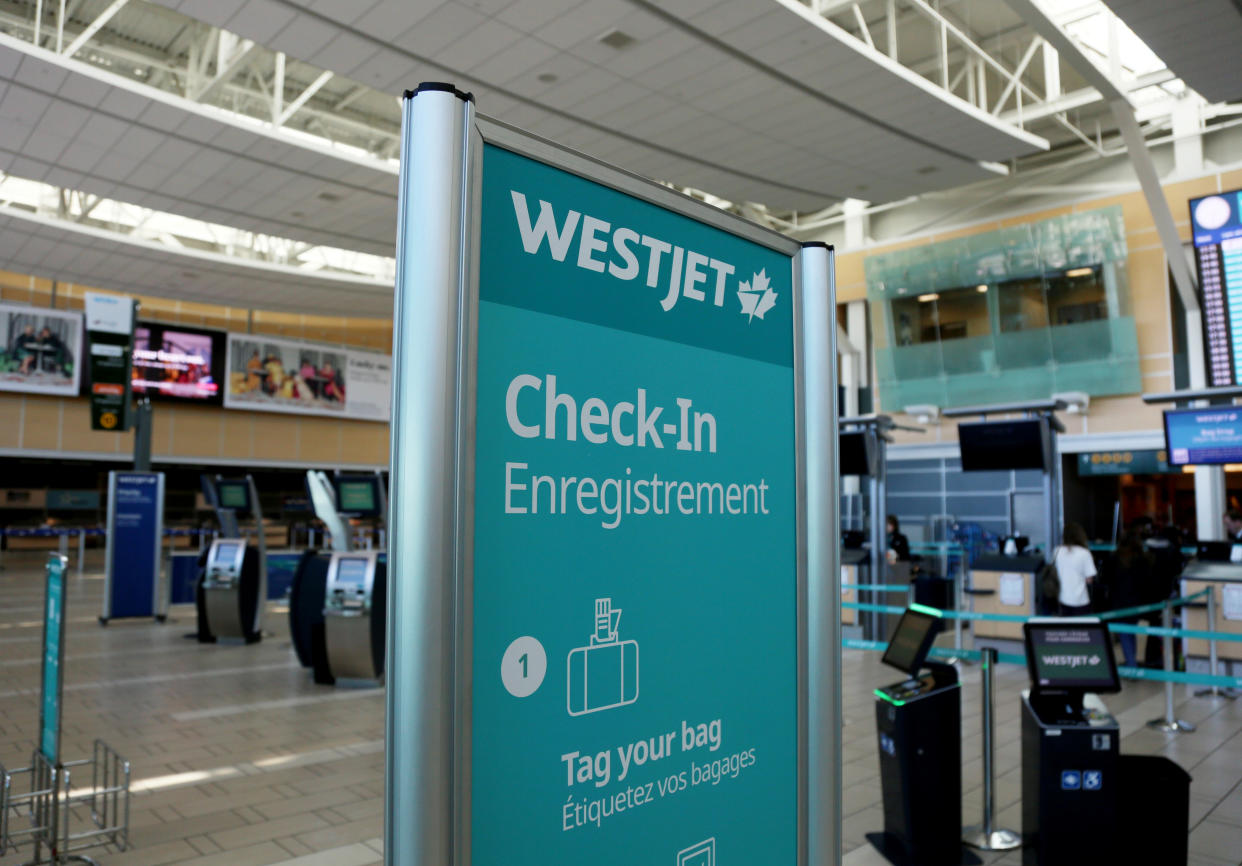Airlines shouldn't shoulder the cost of flights missed due to illness, experts say

WestJet came under scrutiny this week for its decision not to refund the airfare of a terminally ill passenger who was too sick to fly, but experts say the airline’s stance is reasonable.
Air passenger rights advocate Gábor Lukács and CAA spokesperson Annie Gauthier say there are some contingencies airlines can’t be expected to shoulder the cost of.
Eric Wynne from Halifax shared his wife’s frustrating experience with WestJet in a post to Twitter last week.
Kathleen Spilek has battled cancer since 2015 and had purchased a ticket to fly to Ottawa to see relatives while in a period of remission.
However, her condition took a downturn before her flight date when she developed several brain tumours, and she was placed into palliative care.
Seriously @WestJet ? My wife purchased from Halifax to Ottawa to see her nieces one last time before cancer takes her?
Unfortunately the brain tumours are taking her faster than before she is supposed to leave Saturday.
But I’m being told you can’t offer refund or credit?!!— Eric Wynne (@EricW_Photos) July 17, 2019
With his wife unable to make her flight due to her worsening condition, Wynne asked the airline to refund the ticket, but was denied.
“How many other families have been in similar situations where they have faced tragedy or life-altering events not of their own doing only to have the airlines in this country tell the customers basically ‘too bad, so sad,’” Wynne said on Twitter.
“This policy is unfair, not right and should be changed.”
Wynne and Spilek received an outpouring of sympathy and the matter sparked a discussion around whether the airline should adopt a policy of refunding passengers who are unable to make a flight due to an unexpected contingency.
I love @WestJet And I totally understand policies and rules. When we book a non refundable trip we take that chance. But I also believe in compassion and sometimes policies or rules can be broken. Maybe WJ could fly the Ontario family to Halifax to visit this suffering family ❤️
— Crystal (@Jaded_Crystal_) July 24, 2019
Lukács, founder of the organization Air Passenger Rights, said the issue at the centre of the debate is not how an individual airline should react in such a situation, but whether the law should limit restrictions on airfares.
"The question that would be worth public discussion is whether we should permit at all airlines to make a fare simultaneously non-refundable and non-transferable," Lukács said.
The new Air Passenger Protection Regulations do not require airlines to refund the fare of a flight missed due to unexpected health issues, nor do they require airlines to make those fares transferable.
Lukács pointed out that some airlines, like Air Canada, offer refunds in exceptional situations, but said it’s not realistic to expect all airlines to adopt the same policy.
"In general, health-related issues are risks that the airline cannot and should not assume,” Lukács said. “Such risks are for insurance companies."
Gauthier agrees that personal emergencies and serious health conditions that prevent a passenger from making a flight should be a matter for insurance providers.
“Airline companies have responsibilities, but they can’t be responsible for the unpredictable, such as health issues of passengers,” Gauthier said.
“The travellers also have to make sure they planned or prevent potential risks that could occur, risks that are specific to them.”
Gauthier urges anyone planning to travel by air to consider purchasing travel insurance, particularly if their journey will involve multiple segments and forms of transportation, if they are booking flights months in advance, or if they know they may be prevented from flying due to health issues or other personal emergencies.
“Adequate precautions can take all kinds of form, such as interruption and cancellation insurance,” she said. “It’s sad, but...I think the regulation is clear.”


